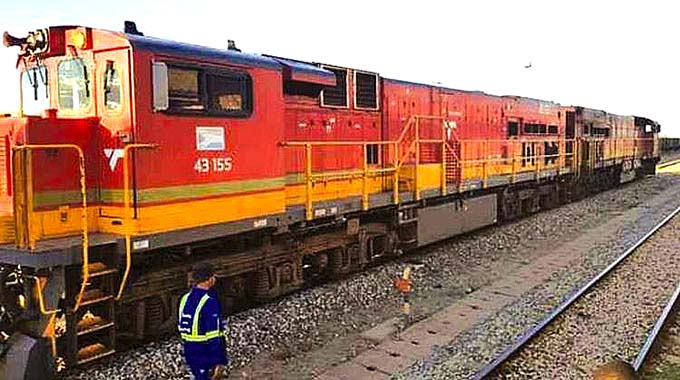NRZ targets mining sector…Diverting traffic from road to rail
THE National Railways of Zimbabwe (NRZ) is strategically shifting mining traffic from roads to rail in response to Zinara’s concerns about the damage caused by heavy cargo on the country’s roads.
NRZ is promoting its services at the Chamber of Mines annual general meeting in Victoria Falls to redirect bulk mineral traffic to the rails.
According to NRZ, rail transport is a more cost-effective option for bulk goods transportation, unlike road transport which inflates business costs, impacting the competitiveness of Zimbabwean products against imports.
Diverting traffic to rail offers increased efficiency in the mining sector and contributes to overall economic growth, says Mr Andrew Kunambura, NRZ public affairs and stakeholder relations manager.
He said NRZ is well-equipped for bulk mineral transportation with a capacity of one train carrying the equivalent of 32 trucks.
“NRZ is a bulk transporter. Together with strategic partners, we can move any cargo or load. We are already moving lots of minerals, but we are saying let us increase that to ensure efficiency and that we contribute much more to the country’s economy,” he said.
Recently, the company partnered with Zimasco to facilitate public-private partnership (PPP) deals, resulting in the refurbishment of 51 wagons that transport ferrochrome for export.
Zimbabwe’s rail infrastructure is expected to transform significantly through a US$533 million overhaul project in partnership with China Railway Group.
This ambitious initiative aims to revitalise NRZ’s efficiency and capacity, boosting the country’s overall logistics efficiency, alleviating the strain placed on the country’s roads, and generating broader economic benefits.
The focus on rail infrastructure aligns with the Second Republic’s vision of massive economic transformation. It also underscores the importance of collaboration between the Government and private sector players to unlock more economic opportunities by strengthening linkages between production zones and key markets.
This will ultimately unlock economic opportunities by strengthening linkages between new and existing production zones with key domestic and international markets. — chroncile









